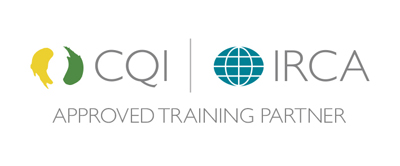
Achieve your Chartered Quality Professional Status
Are you someone that has been working in the quality profession for some time, and as such have developed several layers of knowledge about different aspects of quality?
If you are, then it is time for you to advance your career by gaining your Chartered Status as a Quality Professional.
“Quality is never an accident. It is always the result of intelligent effort”. John Ruskin.
It’s easy to get there with help from GBS Corporate Training. We provide a series of Quality-Practitioner courses and your completion of just two Practitioner level CQI Quality courses, together with demonstrable work experience, can lead to the gold standard Chartered Quality Professional (CQP) status, which is recognised alongside other roles with Chartered status.
In this blog you will learn about:
- What the Chartered Quality Professional Award represents
- How it offers benefits to your career and your organisation
- How GBS can help you achieve your Chartered Status
What is the Chartered Quality Professional grade?
The Chartered Quality Institute is the global chartered body for quality professionals encompassing the whole quality community (including quality management professionals) and is the world’s largest professional body of its kind. The CQI is the only organisation in the world that can award chartered status to quality professionals – an unrivalled mark of excellence, which makes its brand one of the most trusted.
Becoming a member of the CQI and a Chartered Quality Professional is the gold standard for professionalism in Quality, putting you at the same standard as other Chartered Professionals, such as Chartered Accountant, Chartered Manager, Chartered Engineer etc. It offers a tangible and easily understood standard of excellence in quality, marking out quality professionals at the top of their field who are committed to staying there through an ongoing programme of continuing professional development (CPD).
The grade requires professionals to demonstrate competence against the CQI’s Body of Quality Knowledge, a framework that defines the current knowledge boundaries of the quality profession, and also to maintain that competence through CPD.
As a recognised standard of credibility and competence, CQP will benefit quality professionals by increasing the visibility of their skills and so raising their value in the workplace.
Multiple advantages of becoming a Chartered Quality Professional
Chartered status equips you to meet daily challenges in a professional, proficient way. Improving performance and effectiveness at managing people and projects will raise your confidence and ultimately, status in your organisation.
“CQI and IRCA members are part of a unique global network of nearly 20,000 Quality Professionals”. CQI
The Quality profession is changing. More and more employers are demanding Chartered Quality Professionals on their projects. Only Chartered Quality Professionals can act as true business partners, positively impacting the financial bottom line, eliminating unnecessary costs and waste.
By becoming a Chartered Quality Professional, your colleagues will regard you as agents for change (transforming processes, behaviour and culture) and also as true Leaders (creating, managing and improving the organisation’s business process systems).
Membership offers you infinite development opportunities and is an invaluable way of gaining professional recognition for your expertise and commitment. Chartered status offers the following benefits:
Increasing your financial value: the financial impact on your salary of gaining Chartered Professional Status is considerable
Raising your skill levels: the process of becoming Chartered raises your overall skill level even higher
Gaining professional recognition: in today’s competitive job market, you need to establish your credentials as a professional to stand out from the crowd if you wish to succeed. Employers are looking for evidence that an individual is motivated and committed enough to be considered for investment in their professional development and Chartered Quality Professionals are clearly becoming a preferred requirement
Having the confidence to lead: the ability to lead requires that an individual knows and understands the process by which they make decisions, as well as having the inner belief to execute them
Inspiring staff: Chartered status individuals act as a role model for other quality managers and leaders within their organisation
GBS can help you to gain Professional Status
GBS’ business process improvement training solutions are specifically designed to equip business professionals with business process analysis tools. Our courses involve teaching participants the key steps in effective business process improvement and re-engineering, and how to identify what is important to your business and its customers.
Completion of just two in our series of Quality-Practitioner courses, can lead to the gold standard Chartered Quality Professional (CQP) status. Each of our courses are 3 days long and are highly interactive, enabling attendees to immediately apply what they have learnt across different business scenarios.
The participants of our courses learn the skills to identify what is, and what is not, relevant to the business, how to identify changes required in business processes and how such changes will affect the business at large. Another main objective of our business process improvement training is to assist a business or an organisation to meet the demands of its customers, as well as to fulfil its strategic and tactical goals in a more effective manner.
“Quality is never an accident; it is always the result of high intention, sincere effort, intelligent direction and skilful execution; it represents the wise choice of many alternatives”. William A. Foster
Here are just three examples of the areas that you might choose from our range.
1. Improving the quality of your business processes
Business process improvement (or business process management) is the pathway through which business leaders seek to improve organisational performance by analysing, designing, implementing, monitoring, controlling and modifying operational business processes.
Process Improvement often involves a systematic approach which follows a specific methodology. Examples might include “benchmarking” or “lean manufacturing”, each of which focuses on different areas of improvement using different methods to achieve the best results. Process Improvement methodologies such as Lean and Six Sigma aim to optimise processes, which can increase organisational efficiency and profitability by enhancing business processes with three important elements – agility, visibility and efficiency.
Processes can be modified, complemented with sub-processes, or even eliminated for the ultimate goal of improvement. The transparency and agility that process improvement brings to improving processes helps organisations monitor their current processes, make needed changes to maximise productivity and profitability, and better align business processes with business objectives.
The GBS PT202 – Managing Process Performance course has been designed to equip managers and team leaders with the practical skills, tools, and structured techniques to manage process operation and performance.
2. Aligning practices and managing risk
An effective management system enables businesses to demonstrate their ability to consistently provide products and services that meet customer, statutory and regulatory requirements.
It is important that the management system in place is managed well, aligns with projects and meets your organisational goals to ensure that you remain productive and avoid risks.
Adopting a consistent and efficient management system streamlines processes, increases productivity and eliminates any unnecessary risk.
The GBS PT203 Managing Management Systems course has been designed to equip management and quality professionals with the knowledge and skills needed to implement, review and manage this globally recognised standard.
3. Developing a culture of continuous improvement
Continuous Improvement is essentially about continually improving your business, processes, and ways of working. For example, in the context of Lean Management, continuous improvement seeks to improve every process in your company by focusing on enhancing the activities that generate the most value for your customer whilst removing as many waste activities as possible.
Creating a culture of continuous improvement will not only help make your products better, it will make your teams and your business better as a whole. Organisations dedicated to continuous improvement recognise the importance of related actions for strengthening the quality of a product, improving customer satisfaction, and for improving efficiency, productivity and profits.
Organisations that excel at continuous improvement incorporate it into their values and reflect it in their hiring and training. They also incorporate it in their employee evaluation and compensation systems.
There are a variety of improvement methodologies, tools and techniques available to any team but in order to gain the most from them, the selected approach needs to be correctly applied and efficiently managed. The impact on customers and suppliers also needs to be managed during the change period.
“Progress is impossible without change; and those who cannot change their minds cannot change anything”. George Bernard Shaw
The successful management of change is more than just knowing what tools and techniques to use. Softer skills such as understanding why people will resist change and how to help them and ourselves through the Change Curve are important, as is how to involve staff in the change process, how and when to communicate change and how to support team members throughout the process.
The GBS PT204 – Managing Change and Continual Improvement course has been designed to equip Managers, Team Leaders and Improvement Leads with the practical skills, tools, and structured techniques to manage change in the context of process management and improvement.







